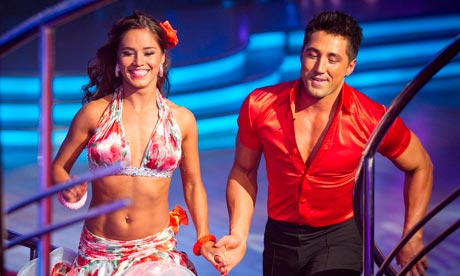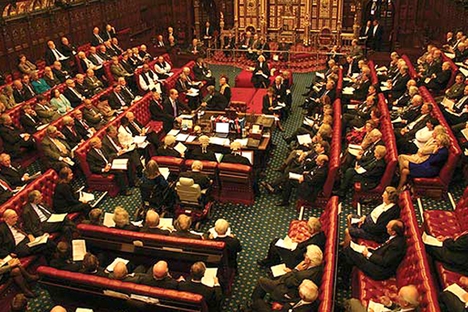
When i dance a routine or "pattern" as some of our members call it, i never think of the choreography involved, nor am i particularly mindful of what direction i'm going in. Rather, i have learnt a sequence, and memorised the sequence. The sequence involved however isnt: Lock-Step, Chassis, Spin-Turn, its a series of "moves" as i call them, under the names i have chosen for them. For example, i name a move after the action it represents such as a "wehay!!" or a "cha-cha real smooth".
Further, i cannot count the dance, that is pick up the rythem and follow it, dancing on time. This is where my partner becomes useful, as she can lead me into the timing (she can actually count the dance). My brain is not particularly arty, and hence i cannot easily pick up a beat. Given the necessity to dance on time, i'm not entirely sure how mum expects me to teach this. Further, while waltz for example employs a simple 1,23-1,2,3 sequence, the Quickstep has slow-slow-quick-quick-slow. Again, as a lay-dance it is incredibly hard to count in something that isn't a sequence of numbers.

Aside from these concerns i do mostly enjoy dancing. Its something very different, although for years i wanted to give it a try. My past has been all about contact sports, aggressive acts of passion and fury that culminated in me being something of a warrior on the field. Ballroom on the other hand has little place for this kind of attributes (excluding perhaps the Paso-Doble, a dance that represents bull-fighting). Having said this however, i do manage to transfer some of personality's intensity onto the dance floor, people have observed my "smoulder" as i dance some of the Latin routines. This isn't a deliberate choice of facial expression however, instead usually my unhappiness at my partner forgetting the routine...again.
Indeed, while dancing was meant to be some light relief, giving myself a chance to compete at something without putting myself in any serious danger - i find it very difficult to compete in contact sports having split one of my vertebrae at the age of 16. While i can compete in contact sports, i always suffer from a mental road block if you will - in my comeback on the Rugby scene i never wanted to throw myself around too much.
Dancing offers a relatively pain free experience, competition does exist and is a great way to satisfy some of my alpha-male urges in trying to win competition. I would recommend dancing to anyone if they get the chance, give it a few tries and you'll start to pick it up. If not for the sporting aspect of it, join so you can observe some of the skimpiest outfits you're ever likely to see during the Latin section of the competitions.



